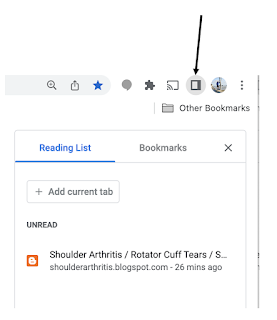Superior capsular reconstruction - some recent articles.
Acromial and humeral head osteolysis following superior capsular reconstruction using autologous tensor fascia lata graftThese authors reported the occurrence of acromial and humeral head osteolysis after superior capsular reconstruction (SCR) using autologous tensor fascia lata graft. In 57 patients with a minimum followup of 2 years, 35.1% (20 of 57 cases) demonstrated osteolysis: acromial osteolysis in 7, humeral head osteolysis in 3, and acromial and humeral head osteolysis in 10).
Compared with the group with no osteolysis, the osteolysis group were not noted to have inferior clinical outcomes or higher graft tear rates.
graft intact (upper left), graft tear from glenoid (upper right), mid substance tear (lower left), graft tear from tuberosity (lower right).
These authors assessed the cost, complications, and readmission rates of three common surgical treatment options for IRCTs: superior capsular reconstruction (SCR), arthroscopically assisted lower trapezius tendon transfer (LTTT), and reverse shoulder arthroplasty (RSA). The cost analysis included a period of 60 days preoperatively, the index surgical hospitalization, and 90 days postoperatively, including costs of any readmission or reoperation.
With the numbers available, differences among the 3 surgical procedures with respect to complication (P = .223), reoperation (P = .999), and readmission rates (P = .568) did not reach statistical significance. The mean standardized costs for the treatment of 3 common IRCT procedures inclusive of 60-day workup and 90-day postoperative recovery were $16,915, $17,210, and $20,837 for LTTT, RSA (average added cost $295), and SCR (average added cost $3922), respectively.
Evaluation of spin in systematic reviews and meta-analyses of superior capsular reconstruction
"Spin" is the reporting of data in a manner that emphasizes beneficial effects or deemphasizes negative effects despite insufficient evidence to support those conclusions. Spin has been separated into 3 categories: misleading representation, misleading reporting, and inappropriate extrapolation.
This study’s primary objective was to identify, describe, and account for the incidence of spin in systematic reviews of superior capsular reconstruction SCR. At least 1 form of spin was observed in all 17 studies meeting the inclusion criteria.
The most common types of spin were ‘The conclusion claims the beneficial effect of the experimental treatment despite a high risk of bias in primary studies’’ and ‘‘Conclusion claims the beneficial effect of the experimental treatment despite reporting bias’’, both of which were observed in 11 studies (11 of 17, 65%).
A statistically significant association was observed between lower level of evidence and ‘The conclusion claims the beneficial effect of the experimental treatment despite a high risk of bias in primary studies’’.
A statistically significant association was also found between more recent year
of publication and the spin category misleading interpretation.
The authors concluded that spin is highly prevalent in abstracts of SCR systematic reviews and meta-analyses. An association was found between the
presence of spin and lower level of evidence, year of publication, and lower ratings of study quality.
To add this blog to your reading list in Google Chrome, click on the reading list icon
You can support cutting edge shoulder research that is leading to better care for patients with shoulder problems, click on this link.
Here are some videos that are of shoulder interest
Shoulder arthritis - what you need to know (see this link). How to x-ray the shoulder (see this link). The ream and run procedure (see this link). The total shoulder arthroplasty (see this link). The cuff tear arthropathy arthroplasty (see this link). The reverse total shoulder arthroplasty (see this link). The smooth and move procedure for irreparable rotator cuff tears (see this link).
Shoulder rehabilitation exercises (see this link).





